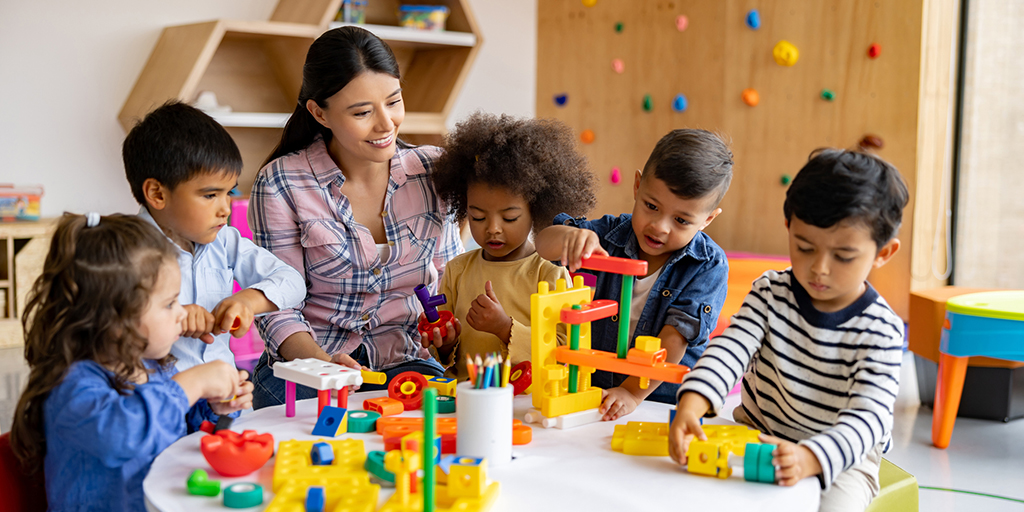
Kindergarten education serves as the cornerstone for a child’s academic and personal development. As the first step in formal education, it introduces young learners to structured learning environments, fostering their cognitive, social, and emotional growth. Understanding the importance and components of kindergarten education helps parents, educators, and policymakers shape a solid foundation for children.
What is Kindergarten Education?
Kindergarten, derived from the German term meaning “children’s garden,” is an educational setting designed for children aged 4-6 years. It bridges the gap between early childhood education and primary school, offering a playful yet structured environment that nurtures curiosity and basic skills.
Goals of Kindergarten Education
- Holistic Development
Kindergarten aims to develop a child’s intellectual, emotional, social, and physical abilities. - Preparing for School
It introduces children to academic concepts like literacy and numeracy, preparing them for more advanced education. - Encouraging Socialization
Children learn to interact with peers, share, cooperate, and resolve conflicts. - Fostering Independence
Activities in kindergarten help children gain self-confidence and the ability to perform tasks independently.
Key Components of Kindergarten Education
1. Cognitive Development
Activities focus on developing thinking skills, problem-solving abilities, and early literacy and numeracy concepts.
2. Social and Emotional Growth
Through group activities and play, children learn empathy, teamwork, and emotional regulation.
3. Physical Development
Physical activities like drawing, building blocks, and outdoor play enhance fine and gross motor skills.
4. Creative Expression
Art, music, and storytelling encourage creativity and imagination.
Teaching Methods in Kindergarten
1. Play-Based Learning
Learning through play is a cornerstone of kindergarten education, fostering curiosity and engagement.
2. Interactive Activities
Teachers use songs, stories, and games to teach concepts in an enjoyable way.
3. Hands-On Learning
Activities like puzzles, crafts, and experiments encourage active participation and practical understanding.
4. Individualized Attention
Teachers observe each child’s strengths and challenges, tailoring activities to suit their needs.
The Role of Parents in Kindergarten Education
Parents play a crucial role in supporting their child’s education during the kindergarten years:
- Encouraging Exploration: Providing opportunities for curiosity and discovery at home.
- Building Routines: Establishing daily schedules for reading, play, and rest.
- Communicating with Teachers: Collaborating with educators to understand and support a child’s progress.
Benefits of Kindergarten Education
1. Academic Readiness
Kindergarten builds essential skills in reading, writing, and mathematics, setting the stage for future learning.
2. Social Skills
Interaction with peers helps children learn sharing, cooperation, and respect for others.
3. Emotional Stability
A nurturing environment allows children to express and manage their emotions effectively.
4. Lifelong Learning Habits
Early exposure to structured learning fosters a love for learning and curiosity.
Challenges in Kindergarten Education
Despite its benefits, kindergarten education faces challenges such as:
- Unequal Access: Not all children have access to high-quality kindergarten programs.
- Large Class Sizes: Overcrowded classrooms can limit personalized attention.
- Curriculum Variability: Standards and approaches vary across regions and institutions.
Conclusion
Kindergarten education lays the groundwork for a child’s educational journey and personal development. By focusing on cognitive, social, emotional, and physical growth, it equips children with the tools they need to succeed in school and beyond. Ensuring that every child has access to quality kindergarten education is essential for building a brighter, more equitable future.



